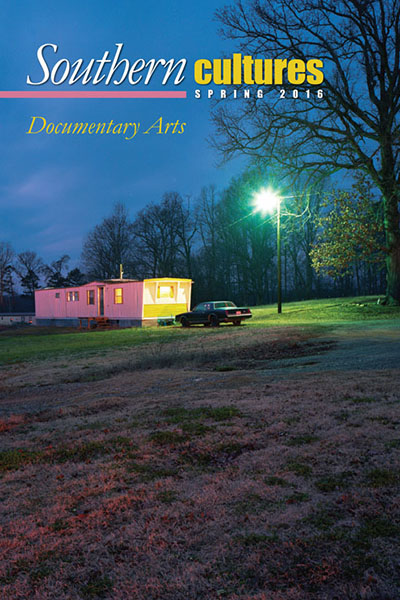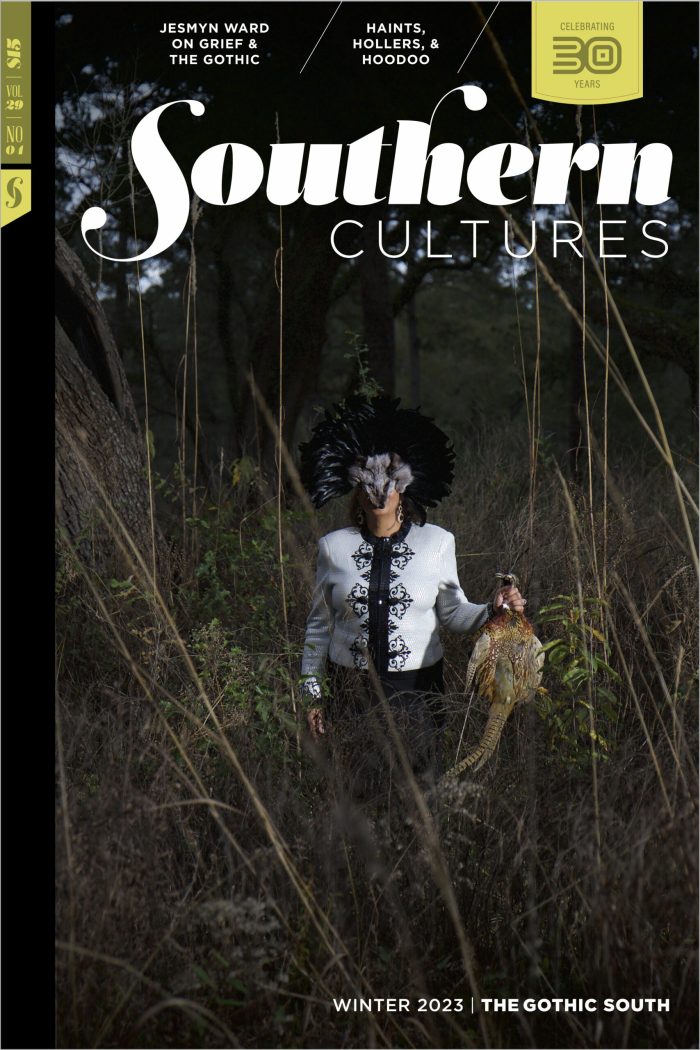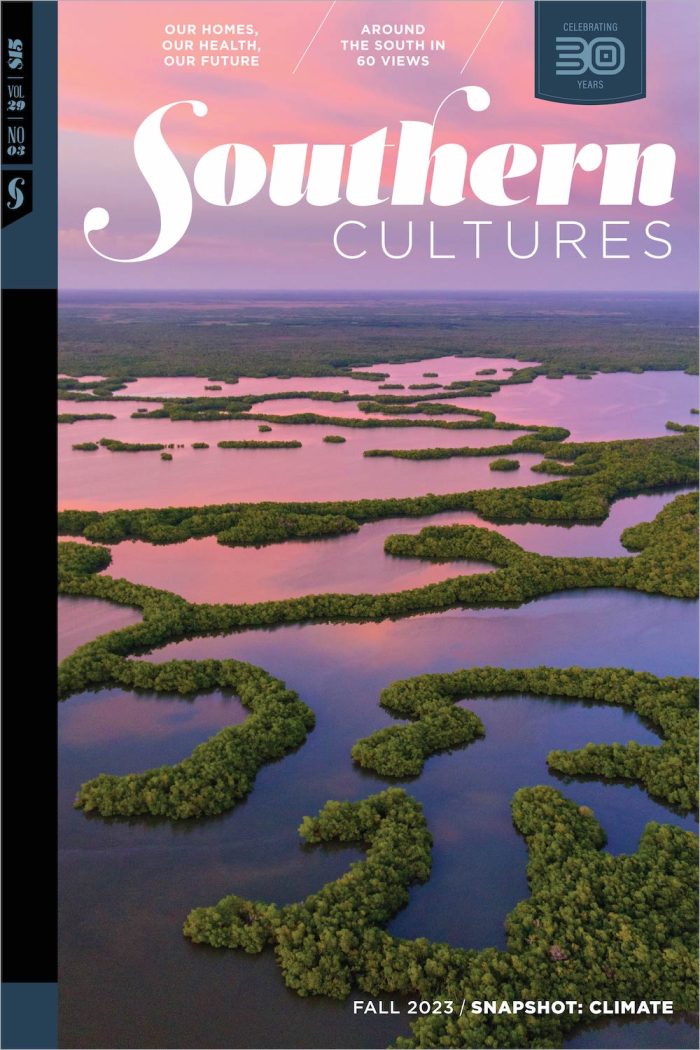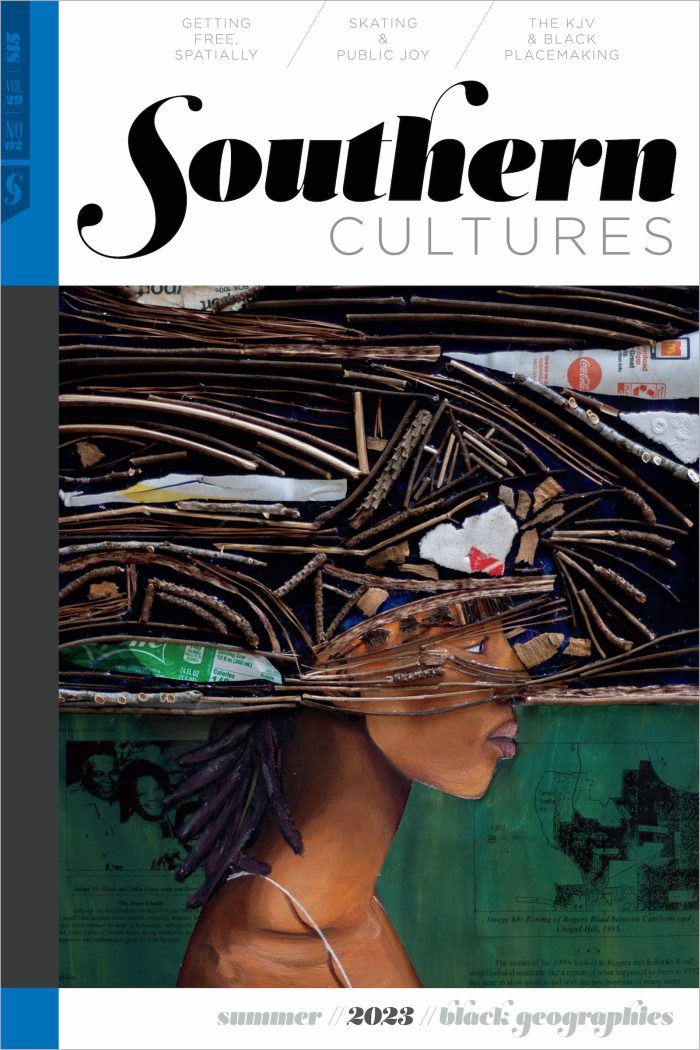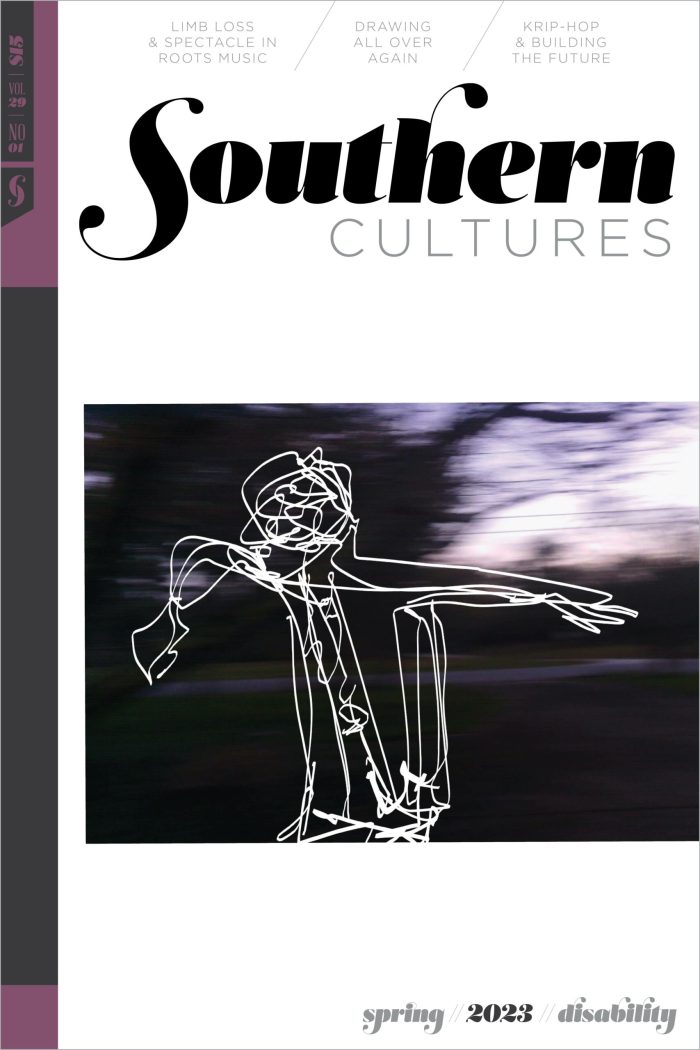BUY ACCESS
by Harry L. Watson
“So what is the truth about documentary?” Southern Cultures is deeply indebted to photographer Tom Rankin, former director of Duke University’s Center for Documentary Studies and current head of Duke’s MFA in Experimental and Documentary Arts, for serving as guest editor of this special issue. Rankin offers his own reflections on documentary and its meanings »
by Tom Rankin
“How do we find a documentary voice that makes room for the documentary artist’s point of view and also embraces . . . those voices of local people who talk to us in ways we understand but would rather not hear?” In the days immediately following the terror in Charleston, South Carolina, and the murder »
BUY ACCESS
by Martha King
“When people asked the stale question ‘What do you want to be when you grow up?,’ I started responding: ‘The President’ . . . With ‘President,’ I never had to reply, ‘Well, sir, when I grow up I’d like to understand what compels you to ask me that question.’” At seven years old I knew »
BUY ACCESS
by Marcus Journey
“At eighteen years old, Mormon Elders are still developing physically and spiritually while working to share their gospel in a culture far from home.” Last year I crossed paths with Mormon missionaries who live in my apartment complex. Having been raised in the Mormon Church, I expressed interest in documenting their ministry in an effort »
by Aaron Canipe
“The camera became my excuse to talk to the beauty queens, fine artists, musicians, rebels, angels, and street preachers of my community.” Inside the Cat Square Superette, above the meat counter, under the garish fluorescent lights and a watercolor painting of the store, a plaque lists four decades of Cat Square mayors. Among them is »
by Scott L. Matthews
“‘No, I don’t want my picter took. / Gwine all round in de paper and de book—/ Ever-body knowin’ des how I look.’” Hale County, Alabama. For many, the words conjure images of Allie Mae Burroughs’s face. Appearing older than her twenty- seven years, she stands before an unpainted clapboard house staring straight into Walker »
Music
by Emily Hilliard
“The local townsfolk do not like mountain music. They can’t stand to listen to it. They buy Benny Goodman, Guy Lombardo, etc.” The typewritten missive in my hand, dated September 8, 1937, location Harlan, Kentucky, described, with no small dose of disdain, the musical predilections of residents in the region. It was mid-August in Washington, »
Participatory Documentary in Tutwiler, Mississippi
by Paige Prather
“‘This house is as old as my grandma. This house is like a junkyard. This house is like an animal in the woods. This house is as raggedy as an old car. This house is as ugly as an ugly tree.’” Like many towns in the Mississippi Delta, Tutwiler, Mississippi, is a sparsely populated community »
Photo Essay
Stories of Migrant Life
by Kyle Warren
While working as part of the Student Action with Farmworkers program between his junior and senior year of college, Kyle was placed with Southern Migrant Legal Services, based in Nashville, Tennessee. Through his work, he met frequently with farmworkers contracted under the H-2A and H-2B guest worker programs across a five-state area, investigated farms historically »
Photo Essay
by Katy A. Clune
“It is the sense of place going with us still that is the ball of golden thread to carry us there and back and, in every sense of the word, to bring us home.” —Eudora Welty, “Place in Fiction,” 1957 Food is the sensory landscape of Laos. In the city streets of Vientiane, smoke rises »
BUY ACCESS
by Karida L. Brown
“They warned me that I’d never get the real history the way I was going about it. They said I needed to capture the story. I listened. And I stepped on a wellspring.” January 2013, Chicago, Illinois. I was sitting in Mr. William Schaffer’s apartment conducting my survey. He was eighty-six years old at the »
by Kenneth R. Janken
“Meier told me, ‘A Man Called White is worthless, nothing but lies.’ And then he walked off, unable, apparently, to suffer fools for much more than a minute.” In 1989, I was a graduate student just beginning research on the life of the historian Rayford Logan. Perhaps best remembered for popularizing the phrase “the Nadir” »
BUY ACCESS
by Jesse Graves
“Behind all those overspilling clouds, the moon catches light still and sends it to you, unbidden, but you would know to ask for it if it never came . . .” Let the past have its dominion tonight,let the winded rain blow in and shakewindows loose in their softening frames,
by Southern Cultures
Many of the photographs you see in the pages of Southern Cultures are drawn from the library collections of UNC-Chapel Hill. As we look back at our past 22 years, we would like to highlight one of our primary sources that is often buried in our endnotes. The Southern Historical Collection (SHC) encompasses more than »
